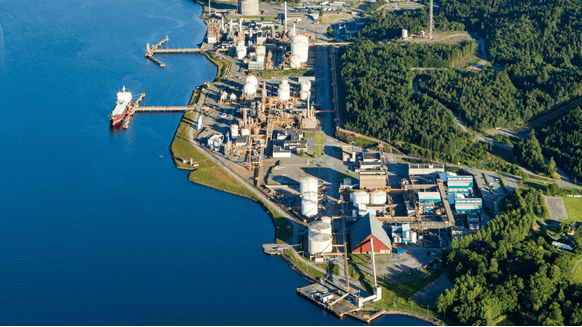INEOS Inovyn has secured the supply of renewable energy for its Rafnes and Porsgrunn sites in Norway by signing two new power agreements with Statkraft. The two agreements mean that the long-standing partnership between the two companies in Norway gets an extension.
The first agreement effectively replaces the site’s existing power contract, which will expire in May 2023. It covers a capacity of 100 MW for an annual renewable energy output of 876 GWh each year. The second agreement will enter into force in 2026: it will cover an additional 30 MW (263 GWh per year) and support INEOS Inovyn’s extensive development plan in process electrification and hydrogen production at Rafnes.
In Norway, INEOS Inovyn produces caustic soda, chlorine, hydrogen, vinyl chloride monomer and PVC – key raw materials for sectors as diverse as automotive, building and construction, paints and adhesives, food, health and medicine, personal care, pulp and paper, textiles and water treatment.
“These long-term green energy supply agreements allow us to continue to competitively supply caustic soda and PVC from Norway to our customers in Europe and elsewhere in the world. They also enable us to deliver on our ambitious plans of asset development we have put in place to meet our 2030 CO2 reduction targets and continue the decarbonisation of our operations to achieve net zero emissions by 2050,” commented Geir Tuft, CEO of INEOS Inovyn. “Statkraft’s support is critical to realizing this ambition as the first in Norway. and therefore achieving our climate goals by benefiting the entire value chain for our customers,” he said.
“The fact that we are contributing to INEOS Inovyn Norway’s extensive manufacturing in Norway and its planned investments in substantial emission reductions is an added value, and perfectly in line with our vision to renew the way we drive the world,” added Hallvard Granheim, executive. Vice President of Markets, Statkraft.
The new agreement is the latest brick in the wall of INEOS Inovyn’s sustainability efforts for its Norwegian sites. It supports the Electra and Aquarius projects, which respectively focus on innovative technology to fully electrify vinyl chloride production and INEOS’ first hydrogen plant Inovyn based on water electrolysis, which represents a additional 40% reduction in the site’s carbon footprint over the coming years.
To contact the author, please email andreson.n.paul@gmail.com


